Nature Reach
Working out of PSU’s Biology Department since 1985, we have a commitment to providing natural history and environmental education outreach programming to school and community groups.
The Mission of PSU’s Nature Reach Program is to provide quality environmental education for all while fostering an appreciation for and connection to animals and our natural world.
You won’t find another entity in this region that can do what we do here at PSU Nature Reach. We go to directly to classrooms with live animals, we provide summer programming, we help teachers become better educators, and we provide valuable, real world training to college students who want to go into careers from veterinary medicine to wildlife management. We provide opportunities for transformational experiences through hands-on learning.
Found Injured or Abandoned Wildlife?
Sign-Up to Receive Notifications
Between 2007 and 2018 we provided over 1400 programs in 30 communities, serving approximately 45,000 children and adults.
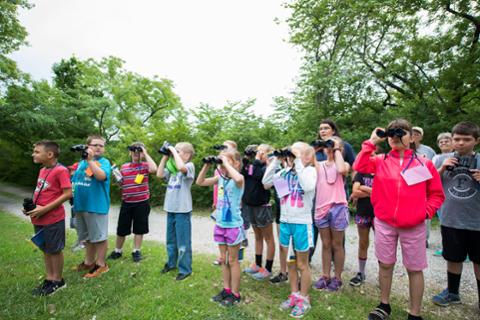
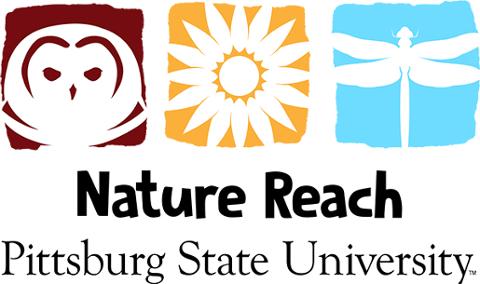

Nature Reach is only partially supported by PSU. We primarily depend on program fees, grants, and especially generous donations. View endowment brochure.
Sponsors:
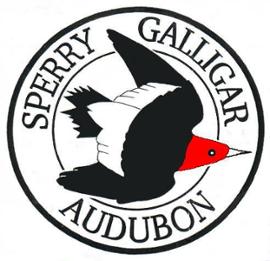

Members:
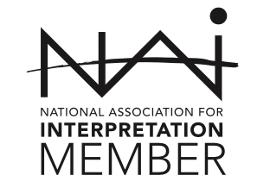

Summer Camp Programs and Reading Program
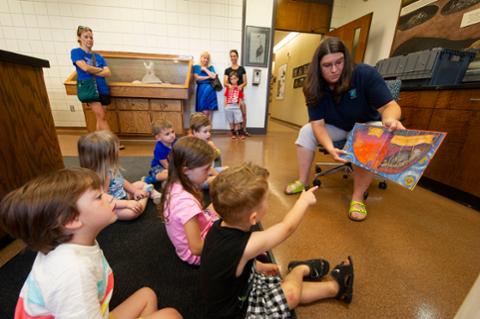
Pre-K Summer Read Program
Look for pop-up announcements in July!
These 30 minute sessions for 3-5 year olds feature a story about animals. Children are introduced to a LIVE animal from the story. Camps are 10-10:30am
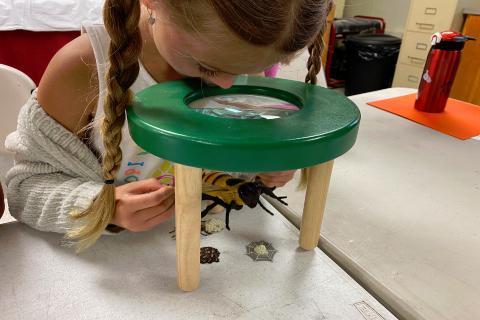
Kindergarten Camp
For students who have completed Kindergarten. Students will receive hands-on learning, outside play, snack, and interaction with live animals!
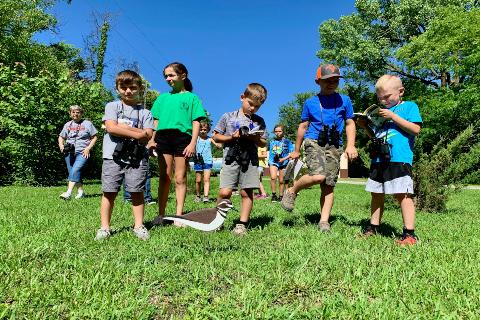
1st - 3rd Grade Camp
For students who have completed 1st-3rd grades. The camp is 9am-12pm each day with an open house at 11:30am on Friday, June 16th.
On-Campus Programs
Live Animal Tour
Cost: $3.00 per student
Maximum Group Size: 30
The tour features our LIVE animal collection on the beautiful Pitt State Campus. Presentations typically run 50 minutes.
Raptors, Birds of Prey Assembly Program
Cost: $100
Maximum group size: 150
During this 45-50 minute program, the presenter will use LIVE birds to demonstrate how these powerful hunters of the sky have intrigued humans for years.
Free Programming to Area Schools
Thanks to a generous donation we are currently able to offer FREE on-campus and off-campus programming to area schools! Contact us to find out if your school qualifies.
Off-Campus Programs
Natural History Reserve and Raptor Tour
Cost: $90 per program + transportation
Maximum group size: 30
Your group will get a chance to see our famous raptors at home! We will talk about how these animals survive in the wild and their importance to the natural world. The tour will also include a brief introduction to strip mining and the wildlife common to the area.
Special Topics
Cost: $90 per program + transportation
Maximum group size: 30
If you would like to see another presentation topic, don’t hesitate to ask. We can usually accommodate special topics.
Nature Reach Travels to YOUR Classroom!
Cost: $90 per program + transportation (.54/mi)
Maximum group size: 30
Topics Available:
Where the Buffalo Roamed: Animals and plants have been used by humans as symbols for centuries. Students will learn about Kansas state symbols illustrated by live and preserved specimens. (If scheduling to coincide with Kansas Day, please submit requests early.)
Rainforest Adventure: The most diverse habitat on Earth is the tropical rainforest. Find out why this habitat is important globally, and learn more about the people and animals that call it home.
Life Cycles/Structures: (Growing up, digging down, standing out, and blending in) Here we discuss the life cycles of insects and other animals including amphibians as well as how their colors, limbs, and skeleton allow them to hide, stand out, hop, skip or jump!
Animals with Class: Animal classification is the emphasis here. This program will discuss the difference between vertebrates and invertebrates. Students will also learn the characteristics of the major vertebrate groups (mammals, birds, reptiles, amphibians and fish).
Creatures of the Night: This program focuses on those animals that are active at night. Using live animals (owl, snake etc...) we will discuss the special adaptations these animals have to help them survive a nocturnal existence.
Amazing Animals: Why do some animals have spots? Why do some animals hunt at night? It's called adaptation! Using live and preserved specimens, we will explain how diversity in color, size, shape and behavior help creatures survive. Hiders, fliers, stinkers and bluffers Insects probably affect humans more than any other group of animals. Learn more about these interesting animals as we discuss their anatomy, classification and behavior using live and preserved specimens. (This program includes a powerpoint presentation)
Hiders, Fliers, Stinkers, and Bluffers: Insects probably affect humans more than any other group of animals. Learn more about these interesting animals as we discuss their anatomy, classification and behavior using live and preserved specimens. (This program includes a powerpoint presentation.)
Creepers, Slimers, and Things That Slither: You either hate them or you love them, but either way, reptiles and amphibians are very important to our world. With the aid of live specimens, we will compare and contrast amphibians and reptiles and discuss their role in nature.
Raptors, Birds of Prey: These powerful hunters of the sky have intrigued humans for years. Students will be amazed as they get a close look at these live predators, learn about their importance and learn why many are in need of our help. (Also available as an on-campus assembly program.)
The Web of Life: Where do living things get their energy to survive? Learn about animal food habits by looking at live specimens, skulls and teeth of carnivores, herbivores and omnivores, and explore how every living thing is dependent on food chains.
What Are We All About?
Our Vision is to Help Create a Community that:
- Understands the process of science
- Is environmentally literate
- Treats animals and their environments in a respectful and responsible way
- Promotes healthy, responsible, and sustainable practices at home and in their community
- Has a connection to the outdoors in multiple and meaningful ways
Our Goals are to:
- Spark an interest in science and the environment
- Provide quality, nature-based environmental education programing to the surrounding region
- Provide academic resources, hands-on experience, and inspiration for students
- Encourage engagement in the outdoors
Found an Abandoned or Injured Animal?
If you find an abandoned or injured wild animal in this area, contact the Kansas Department of Wildlife, Parks and Tourism at (620) 231-3173.
Nature Reach is no longer a licensed wildlife rehabilitation facility. We cannot take in injured or abandoned wildlife.
The closest rehab facility is Operation Wildlife.
Resources for Pitt State Students
Are you a PSU student interested in working with animals? Would you one day like to work at a zoo, nature center, museum, or state/national Park? If so, this might be the perfect place for you to get hands-on experience! We typically offer 5-7 volunteer and/or paid student worker positions each year. You can potentially even earn course credit. Download an application or stop by 328 Heckert-Wells Hall.
More Resources and Contacts
Teacher Workshops and Resources
Teacher Workshops
Working closely with the Kansas Association for Conservation and Environmental Education (KACEE) we conduct teacher in-service workshops using nationally recognized materials from Project WILD, Project WILD Aquatic, Project Learning Tree, and Project WET. We can also customize a workshop for your group or site. Visit https://www.kacee.org/professionaldevelopment to find upcoming workshops. They are held all over the state, but we co-sponsor at least one per year.
Resources for Teachers
Professional Resources
Natural History Reserve
For more information visit: Natural History Reserve
Nature Reach Office
Delia Lister
Department of Biology
328 Heckert-Wells
Pittsburg State University
1701 South Broadway
Pittsburg KS 66762
Phone: 620-235-4727